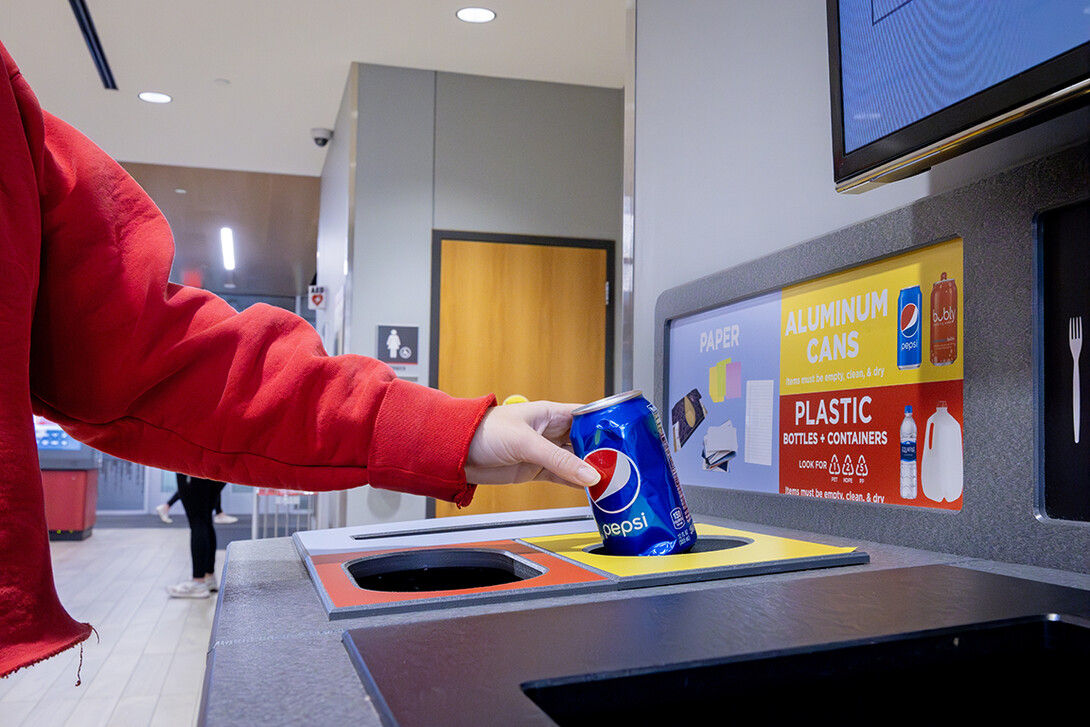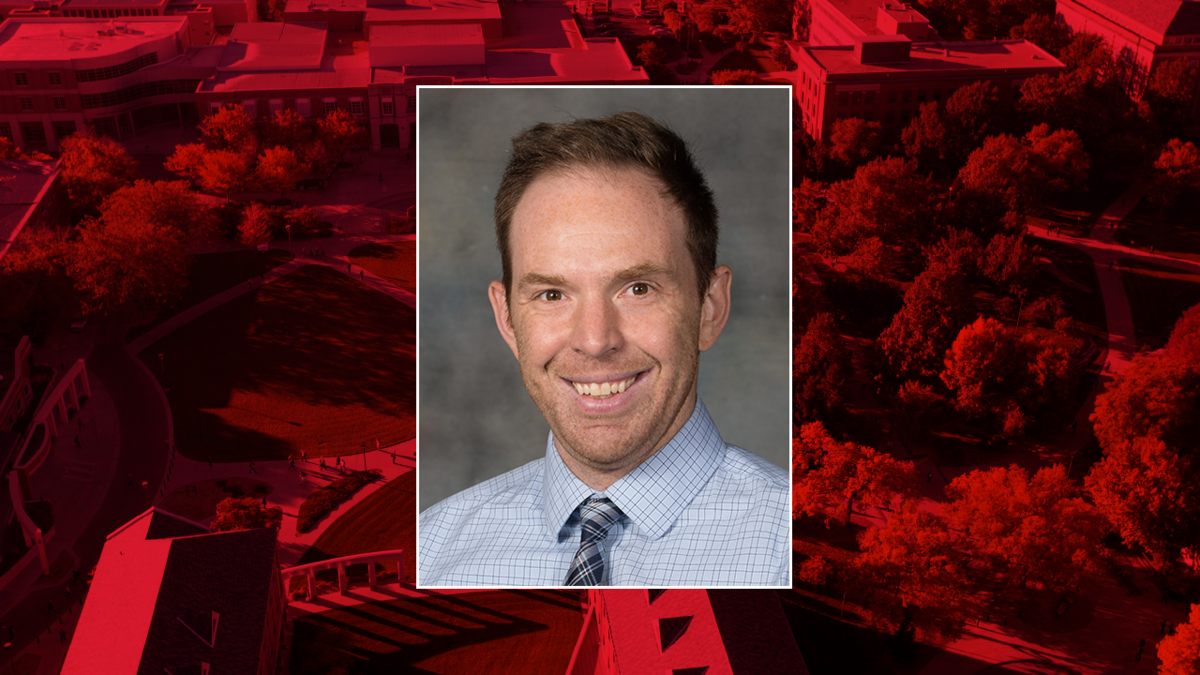
The All in the Hall recycling program has reached a new milestone, completing implementation in all of the buildings originally planned during the program’s 2022 approval.
Twenty-eight new buildings are included in the All in the Hall recycling program for the fall 2024 semester. The program has now been implemented in nearly all campus buildings used primarily for instruction, research and engagement.
Buildings added this semester on City Campus, are:
- Andrews Hall
- Architecture Hall
- Business Services Complex
- City Campus Utility Plant
- Facilities Management Shops
- Hewit Place
- Howard L. Hawks Hall
- ITS Annex
- Parking and Transit Services
- Seaton Hall
- Sheldon Museum of Art
- Transportation Services
- UNL Police Department
- Watson Building
Buildings added on East Campus are:
- Agronomy and Horticulture Greenhouse 4
- Bio-Fiber Development Lab
- East Campus Utility Plant
- Environmental Health and Safety Warehouse 1
- Family Resource Center
- Forage Research Laboratory — USDA
- Forestry Hall
- Kiesselbach Crops Research Laboratory
- Landscape Services East Campus
- Library Depository Retrieval Facility
- Mussehl Hall
- Service Building
- Stewart Seed Lab
- Water Sciences Laboratory
All in the Hall is now active in 89 campus buildings. The program was approved for phased implementation by UNL’s Executive Leadership Team in 2022.
The standardized All in the Hall recycling stations include four waste streams — paper, aluminum cans, plastic bottles and containers, and landfill. Corrugated cardboard is also accepted and should be flattened and placed behind the stations. Items placed in any recycling stream should be clean, dry, and free of food or other non-recyclable waste.
The program provides a consistent opportunity for university community members and campus visitors to recycle within campus buildings through the placement of standardized recycling stations in high-traffic areas. In buildings where All in the Hall recycling stations are located, Custodial Services staff repurpose time previously spent collecting landfill waste from private office spaces, classrooms, and conference rooms, allowing them to reliably service all waste streams from the recycling stations.
Estelle DeJonge, director of Custodial Services, has been a key champion of the All in the Hall program and the streamlined process it has provided for her team to follow.
“All in the Hall allows custodial staff to provide recycling services within campus buildings, something many of our staff have advocated for over time,” she said. “Centralized recycling stations in high traffic areas of buildings that replaced many single-stream waste containers allow custodial staff time to be able to provide recycling service on a regular basis. It is a win-win for custodial and the university as a whole.”
Implementation of All in the Hall is managed by the Office of Sustainability, which hosts expanded information about the program on its website, including an interactive dashboard that provides an overview of the implementation timeline and a map of active buildings. The Office of Sustainability continues to evaluate opportunities to expand the program to additional campus buildings including residence halls, building on the successful pilot of All in the Hall that has been active in three residence halls since August 2023.







